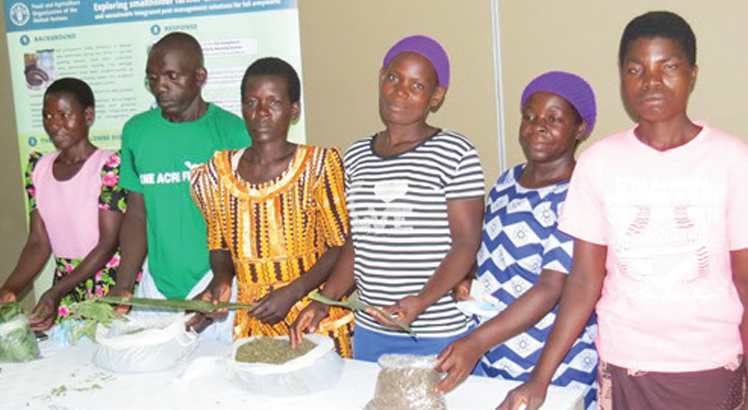Food and Agriculture Organisation (FAO) of the United Nations has shared local methods of dealing with the fall armyworms which have attacked crops in the country.
The organisation’s assistant representative responsible for the programme George Phiri said the continued devastation of crops, mostly cereals such as maize, millet and sorghum, necessitated a meeting with Ministry of Agriculture officials and the country’s eight Agricultural Development Divisions in Blantyre on Tuesday.
“Farmers will need to buy pesticides to deal with fall armyworms, but others might not have money. Such farmers will need to use local ways of dealing with the pests,” said Phiri.
The farmers showcase their local methods
He said the traditional methods are not only cheap, but also have no side-effects on people’s health or the environment.
Ministry of Agriculture Principal Secretary Sandram Maweru said government is ready to support such initiatives to benefit farmers.
“We encourage farmers to continue with measures that help them in their crop production. But we also need to do thorough research on any negative effects on the people and environment. Otherwise, the ministry encourages such methods,” he said.
Twelve farmers from Tamani and Mpinda agriculture extension planning areas in Chiradzulu District explained about various methods they use to control fall armyworms.
Belita Petro from the district, said they use soup to control the pests while others from Phalombe District said they use leaves of trees such neem, chiphanjovu, wombe and a shrub sisal
The post FAO for local methods to control pests appeared first on The Nation Online.
 Moni Malawi
Moni Malawi 
